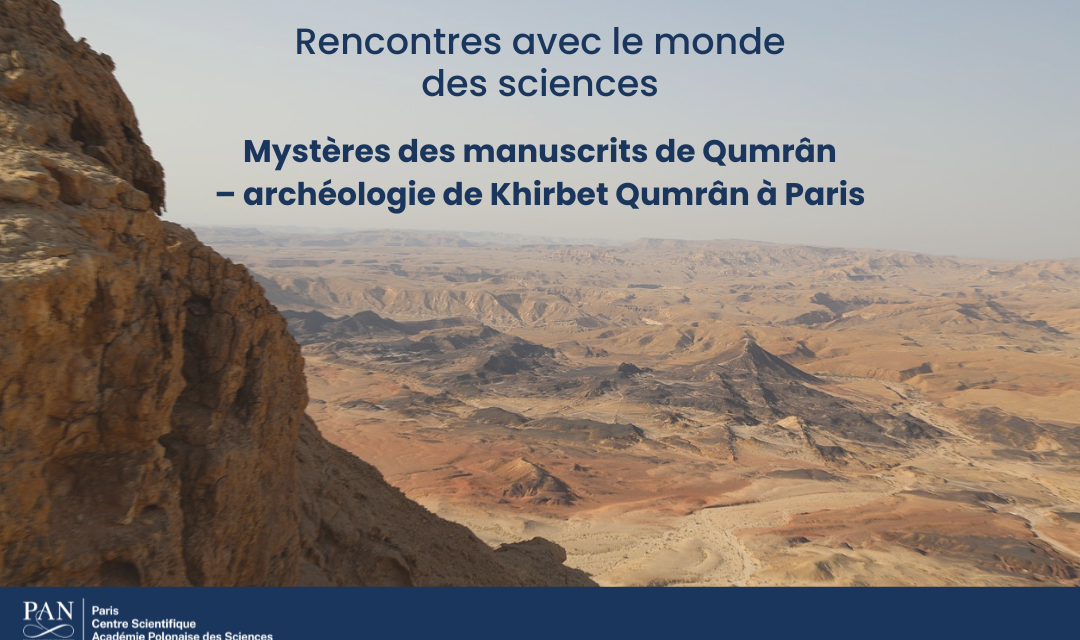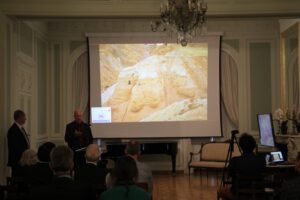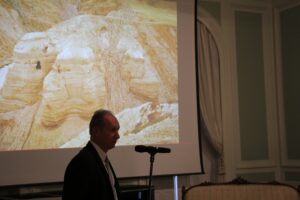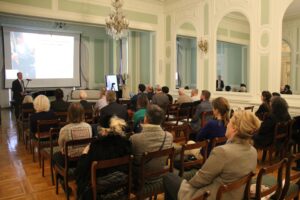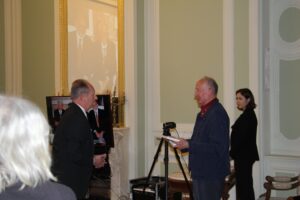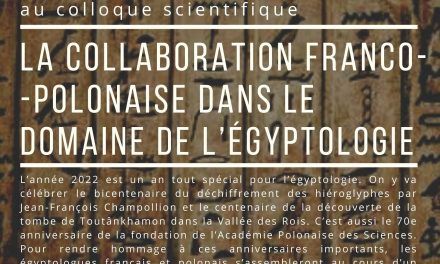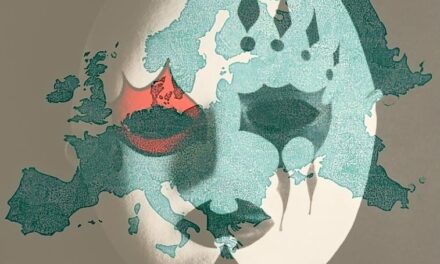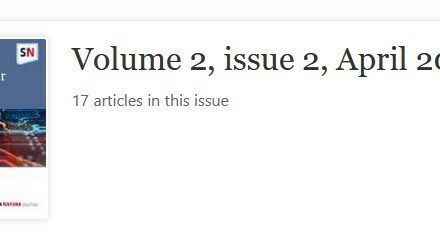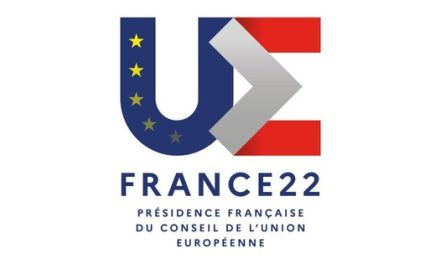On Wednesday 24 April 2024, the first lecture of the series of “Meetings with the world of science”, organised by the Polish Academy of Sciences Scientific Center in Paris, took place. The topic of the meeting, conducted by Dr. Dariusz Długosz (Louvre), was “The Secrets of the Qumran Caves Scrolls – the archaeology of Khirbet Qumran in Paris”. The event was held under the patronage of the Ambassador of the Republic of Poland to France, Mr. Jan Emeryk Rościszewski, and under the scientific supervision of Prof. André Lemaire, Director of Studies at the École Pratique des Hautes Études.
The lecture was a complete presentation of the French archaeology and biblical manuscript collections of Qumran, the so-called Dead Sea Scrolls. As Dr. Dariusz Długosz pointed out – this is one of the most representative collections in the world.
Approximately 900 manuscripts in total were found. Researchers assume that this number was originally higher, but over the centuries some manuscripts were destroyed by unsuitable conditions. In a total of eleven caves, some 200 of the oldest manuscripts of the Hebrew Bible of the Old Testament were discovered, dating from the 3rd century BC to the 1st century AD. All the discovered manuscripts from Qumran have been published in the 40-volume Oxford series „Discoveries in the Judaean Desert”.
As Dr. Dlugosz pointed out in his presentation, some of the most significant items in the collection of the Louvre’s Département des Antiquités orientales are:
- a vessel with a lid for storing biblical scrolls,
- a fragment of the linen cloth in which the manuscripts were wrapped,
- faithful copies (facsimiles) of the only manuscript on a copper plate, the so-called Copper Scroll (3Q15).
Currently, two of the three aforementioned objects – the Bible scroll vessel and the facsimile of the Copper Scroll – are in storage due to ongoing work in the museum’s halls. Their return is planned for 2025. The collection of the Museum of the Bible and the Holy Land, meanwhile, includes two vessels used to store biblical manuscripts and a small fragment of a first-century AD Psalter manuscript probably from cave 4 at Qumrân (or Nahal Hever).
While discussing the Dead Sea Scrolls and the history of their research, it is impossible to ignore the contributions and merits of Jozef Tadeusz Milik (1922-2006), which place him among the founders of Qumranology, as well as Professor André Lemaire, a French historian, philologist and expert in Biblical and West Semitic epigraphy of international repute.
All interested in manuscripts from Qumran are invited to visit the Louvre Museum, the Museum of the Bible and the Holy Land (Catholic Institute) and the Bibliothèque Nationale (BnF) to see them.
“Meetings with the world of science” is a series of lectures on popular science organised in 2024 by the Polish Academy of Sciences Scientific Center in Paris. It aims to disseminate the achievements of Polish scientists in France. The meetings are held in a hybrid form and are aimed at all those interested, regardless of their level of knowledge in particular topics.




